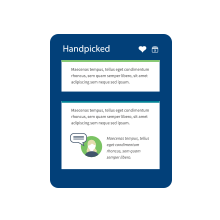Understanding allowable expenses with corporate hospitality and business meals

HMRC has strict rules concerning the tax treatment of corporate hospitality and business meals provided for clients, customers and suppliers. This type of expenditure falls into the category of 'business entertainment' in your company accounts.
A definition of 'business entertainment' is provided by HMRC - "hospitality provided free of charge to the recipient, or hospitality that is subsidised." An important point to consider in this respect is that the reason for entertaining your client must be genuinely business-related.
This is described by HMRC as "discussing a particular business project or forming or maintaining a business connection." Non-business entertainment of clients, on the other hand, is defined as, "entertaining a business acquaintance for social reasons."
Are these expenses tax deductible?
Unfortunately, HMRC are strict on disallowing tax relief on such expenses, even if they're wholly related to your business. You will not be able to claim corporation tax relief or VAT on any form of corporate hospitality or business meal.
One significant point to consider, however, is how you pay for these expenses, as this can affect your personal tax liability - do you put the cost of entertaining a genuine business client through the company's books, or pay as an individual?
If you're providing food and drink in a purely business-related scenario, you should put the expenditure through the business. As well as food and drink, other common examples of corporate hospitality include:
- Tickets to the theatre or a concert
- Attendance at sporting events
- Hospitality within executive suites at football and other sports stadiums
- Providing food and drink at corporate events
Reduce your personal tax bill by paying through the company
Although you won't be able to claim tax relief to reduce your company's overall profit figure, it makes sense to allocate the cost in this way if it's for business purposes. Paying for legitimate business meals and corporate entertainment personally rather than through the company, isn't tax efficient, particularly for higher rate and additional rate taxpayers.
On the other hand, it's better to pay for non-business related entertainment of clients yourself, to keep business and personal expenses separate, and avoid potential enquiries into your tax affairs by HMRC.
What about reclaiming tax on the cost of staff entertainment?
When it comes to your employees, the cost of food and drink - whether it's free-of-charge or provided at a subsidy - can be deducted for tax purposes under the following conditions:
- An annual event is held, and is open to all members of staff
- The cost per head is no more than £150 including VAT
Corporate hospitality and business entertainment costs are treated differently to other types of business expenditure. If HMRC were more lenient, and allowed the costs of entertaining clients to be tax-deductible, the system could be open to abuse.
Their strict stance on the matter prevents this misuse, and ensures that any claims for tax relief have straightforward eligibility criteria, are carefully regulated, and can be easily verified
It's worth noting that expenses related to business entertainment and non-business entertainment should be reported on Form P11D at the end of the tax year.
For more detailed information on this potentially complex area of business, let us put you in touch with reliable and experienced accountants in your area. Handpicked Accountants has longstanding professional relationships with fully qualified accountants and accountancy firms around the UK, and can match your needs with a local expert.








